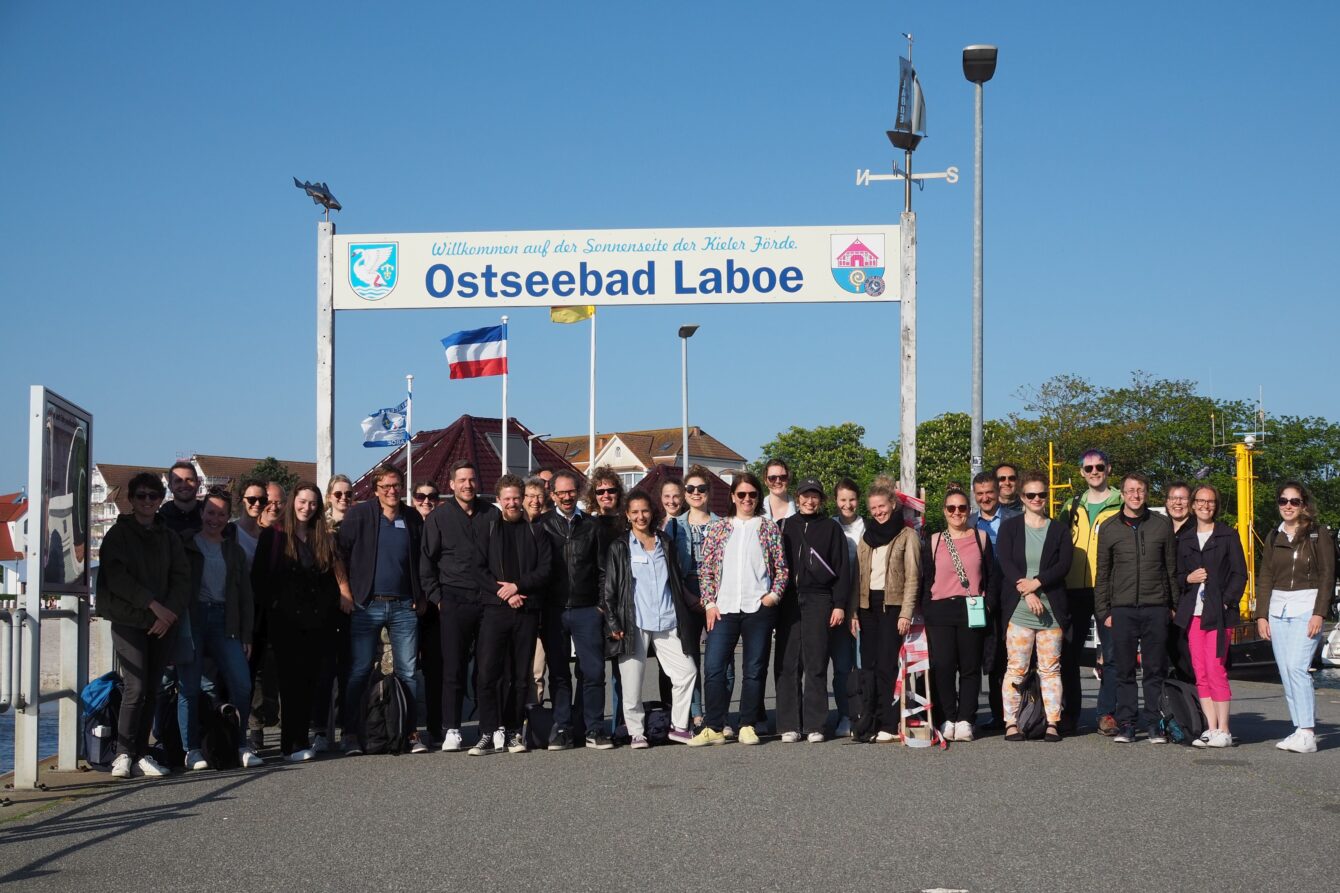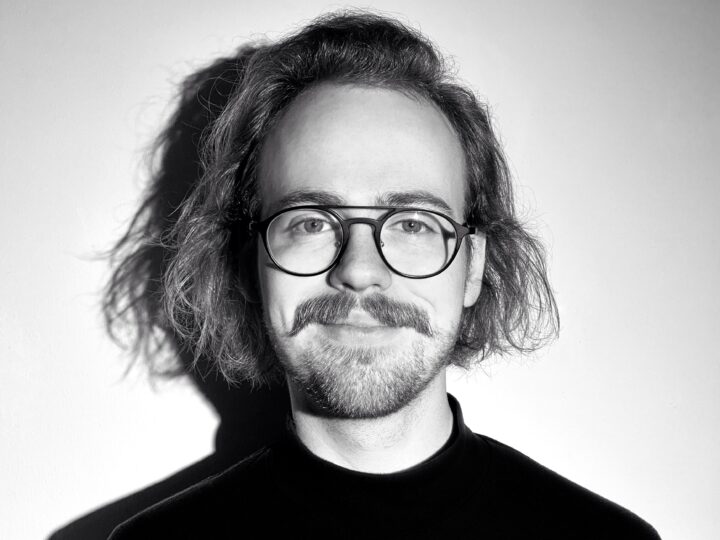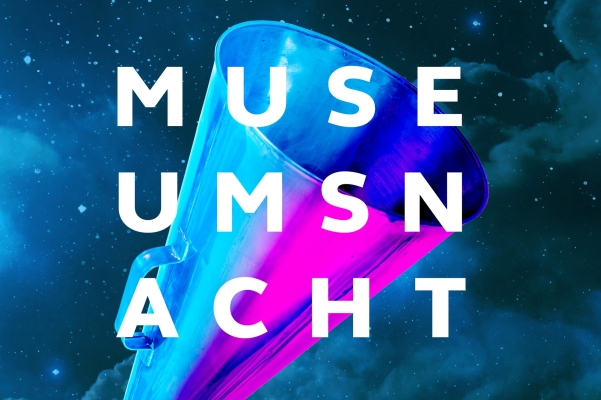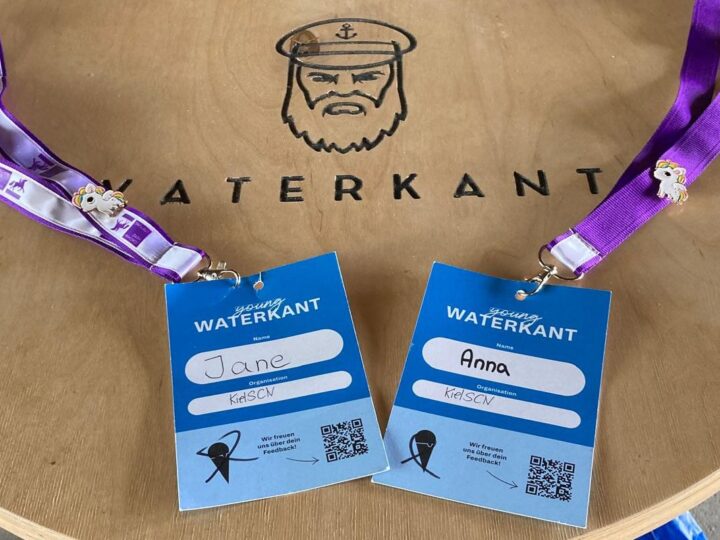Networking Meeting Science Communication³ in Kiel
Target Groups in Science Communication
From May 15 to 17, 2024, the four research centers for science communication funded by the Volkswagen Foundation came together in Kiel for a networking meeting. The participants from Munich, Tübingen, the Ruhr Region and Hanover used the time together to discuss the topic of target groups. In addition to a brief theoretical input, the focus was on working together. In small groups on Thursday afternoon, the representatives of the centers and the foundation developed ideas on how they can get different target groups at different locations interested in science, for example.
Panel Discussion at the Baukulturforum
To kick off the meeting, KielSCN hosted a public panel discussion on Wednesday, May 15. In her welcoming address, Renate Treutel, Mayor and Head of Department for Education, Youth, Culture and Creative City, once again mentioned the great importance of science communication research for the city of Kiel. Cora Schaffert-Ziegenbalg, funding officer at the Volkswagen Foundation, praised the work of the four centers to date and looked forward to the networking meeting with great anticipation.
Holger Wormer (Rhine Ruhr Centers for Science Communication Research, RRC), Sarah Stiller (Munich Science Communication Lab, MSCL), Olaf Kramer (Centers for Rhetorical Science Communication Research on Artificial Intelligence, RHET AI) and Anna Vollersen (Kiel Science Communication Network, KielSCN) then gave insights into their experiences in research and practice. They discussed, for example, how science communication can reach even more diverse target groups and become more inclusive overall and what role research can and should play in this.
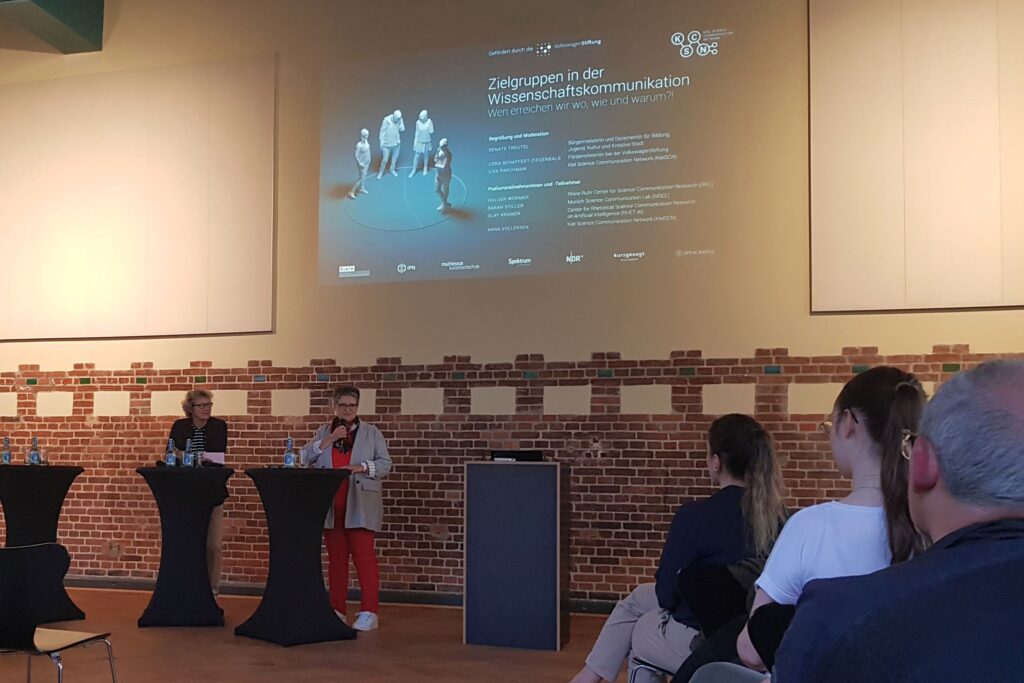
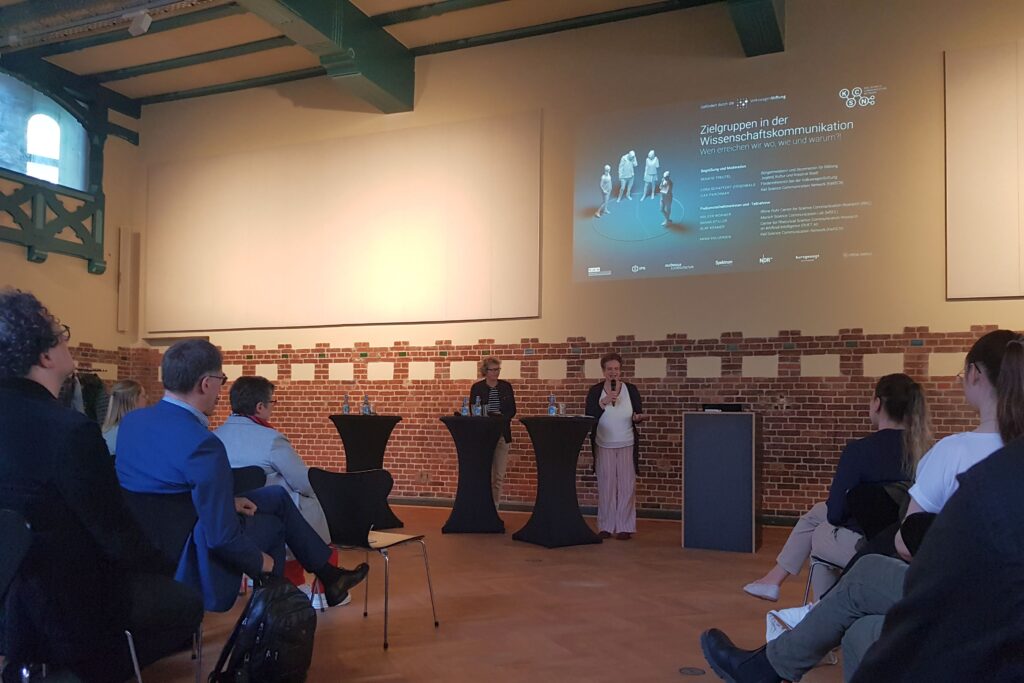
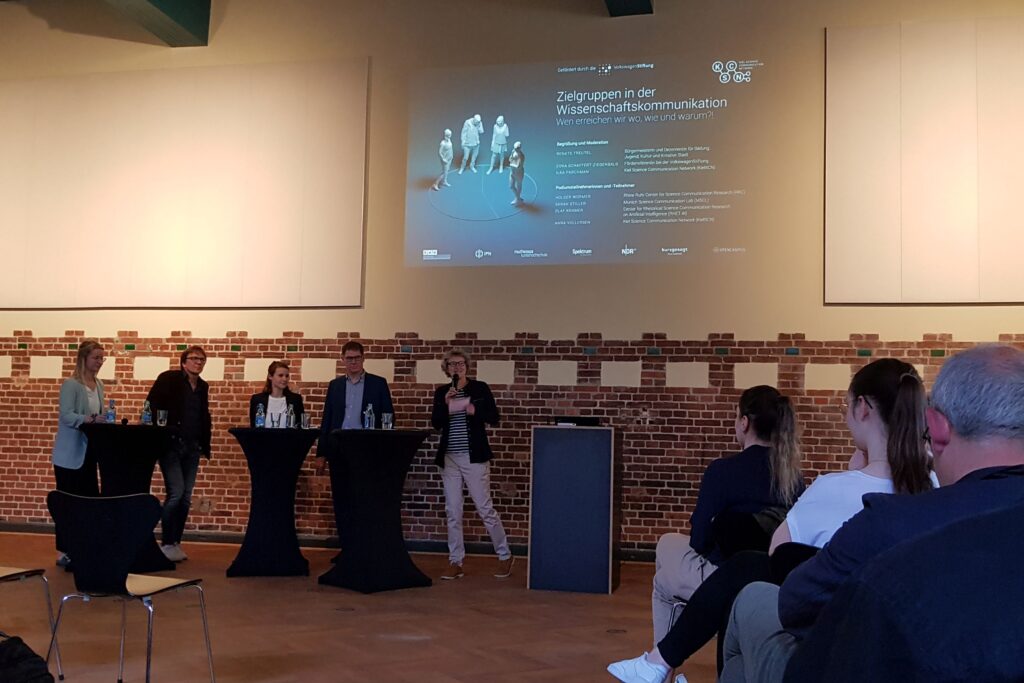
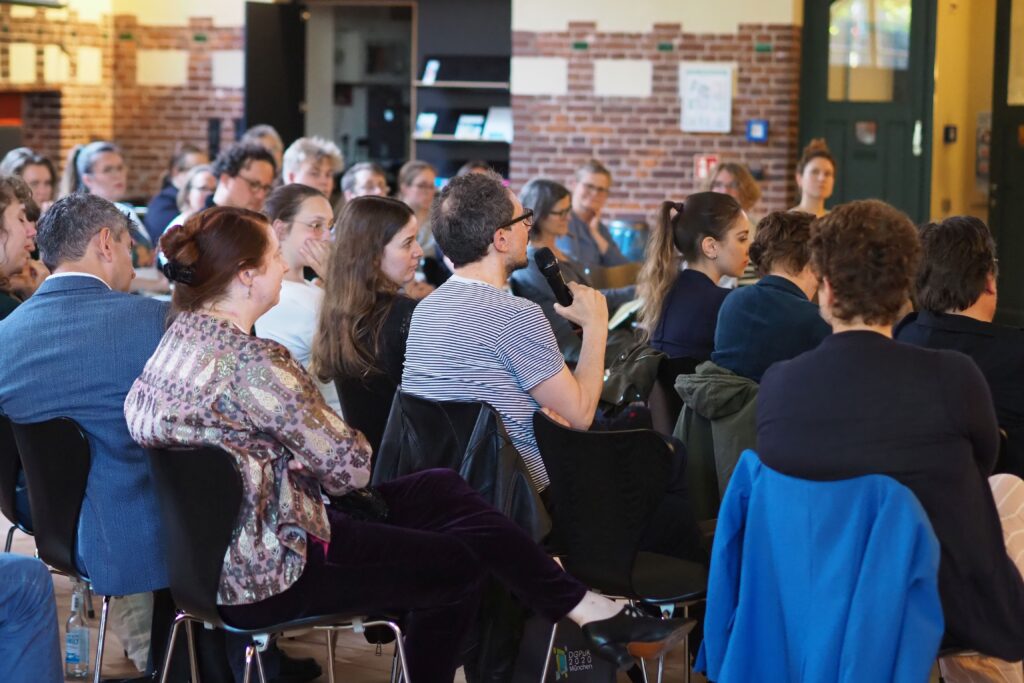
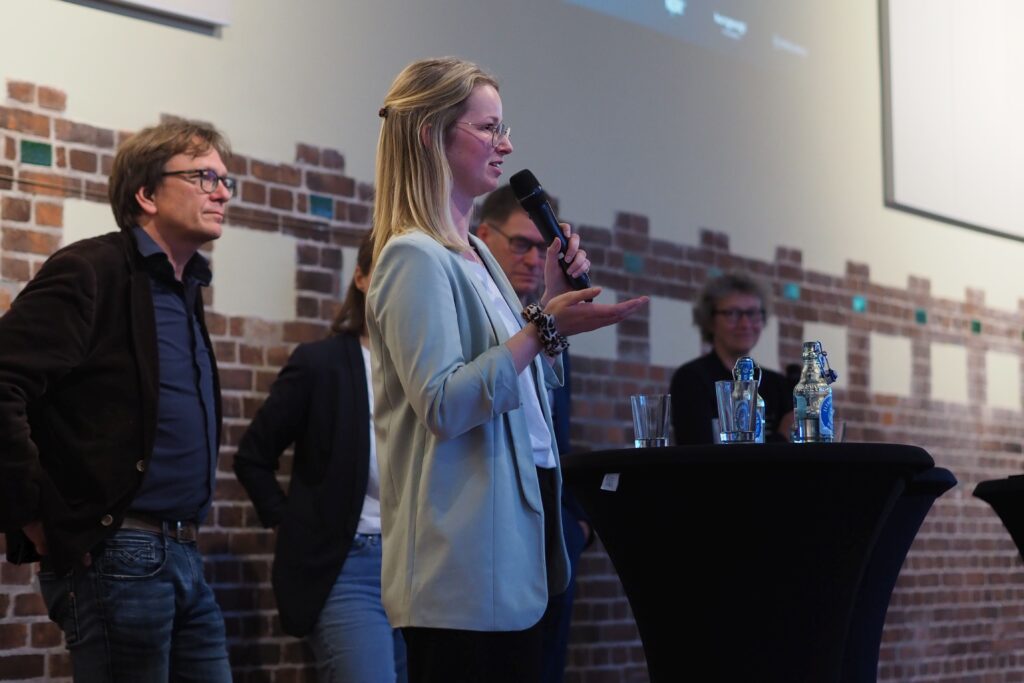
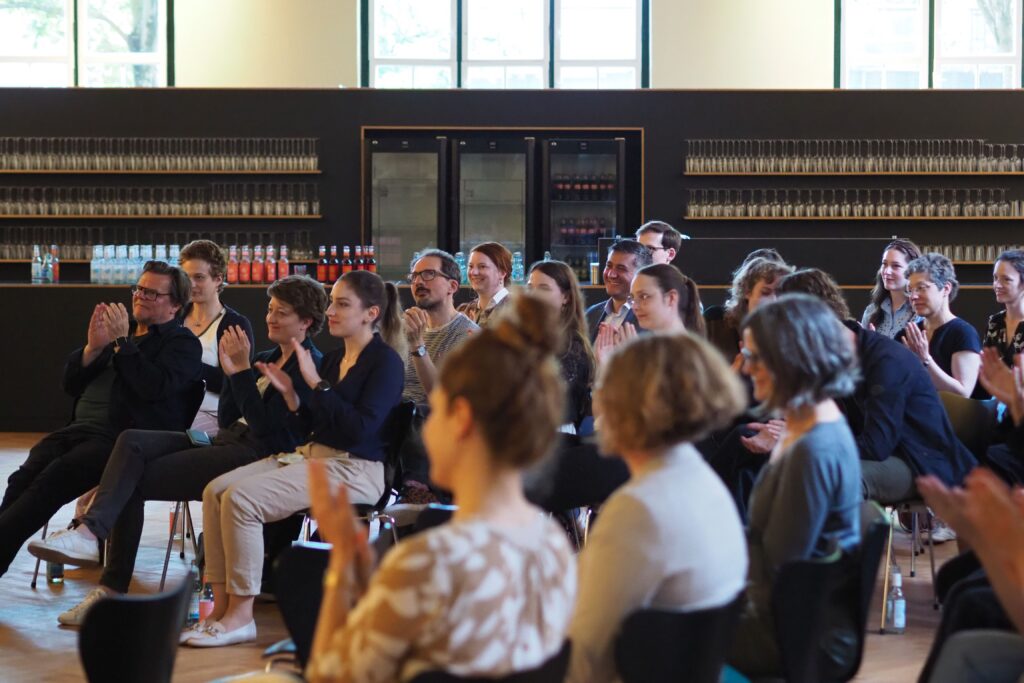
Welcome at the IPN
On Thursday, May 16, the networking meeting began on the premises of the Leibniz Institute for Science and Mathematics Education (IPN). After a welcome from Mareike Bierlich, Managing Administrative Director at the IPN, and Michael Breda, Vice President of the Muthesius Academy of Fine Arts and Design, a short input from research on target groups followed. Anna Vollersen discussed who science communication currently primarily reaches and, on the other hand, what exclusion factors can be. She also gave an insight into target group analysis and segment analysis and referred to the various objectives of communication, for example in educational research and design research.
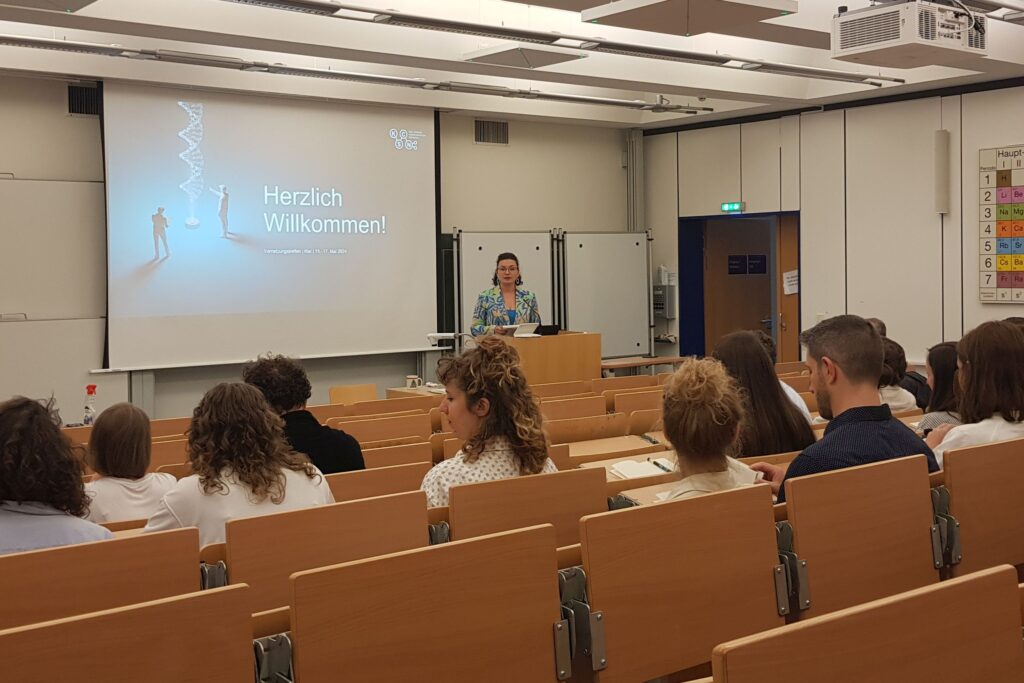
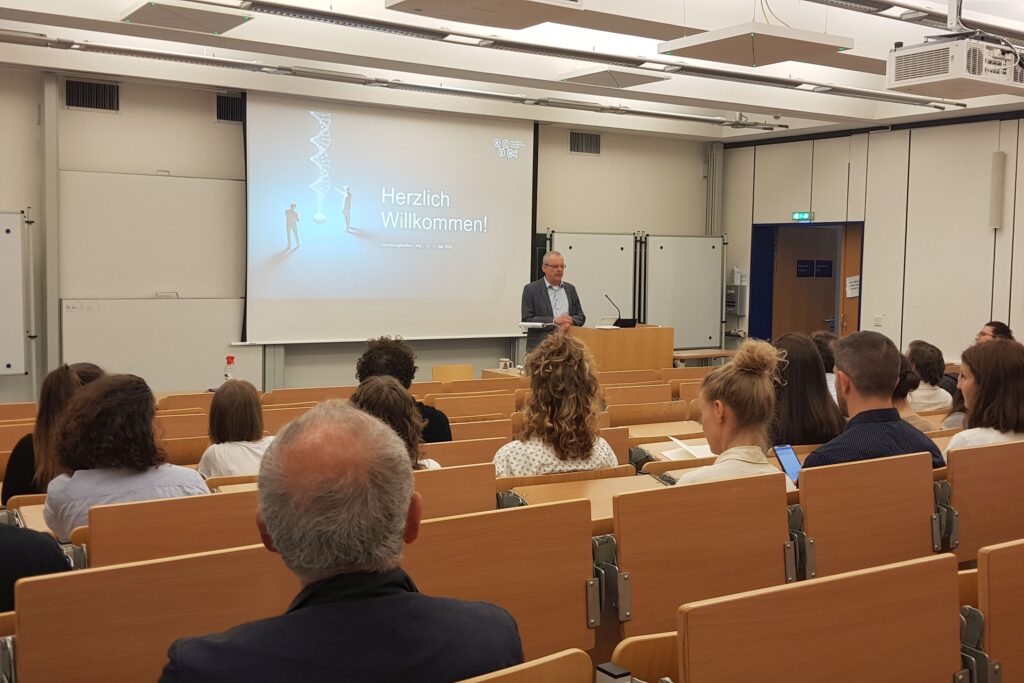
Discussion Café and Workshops
The participants then worked on various issues in a discussion café. For example, the focus was on “Underserved Groups”, i.e. those population groups that have no access to science communication. Discussion points here were who belongs to this group and what we really know about them. Other topics included the use of personas in science communication, the transfer between research and practice and addressing target groups. In a change of perspective, everyone was asked to think themselves into different roles and assess various communication products from this perspective.
Four workshops at different locations in Kiel were on the agenda for the afternoon. They went to Kiel’s city center and the Kieler Forschungswerkstatt, to the Kiellinie and to the Science Center, a central location of Digital Week Kiel. There, the groups developed ideas to address two individually defined target groups. The concepts should each contain a “catch” component to attract the attention of the target groups and a “hold” component to secure people’s interest in the long term. Afterwards, all participants came together again to round off the evening in Laboe.
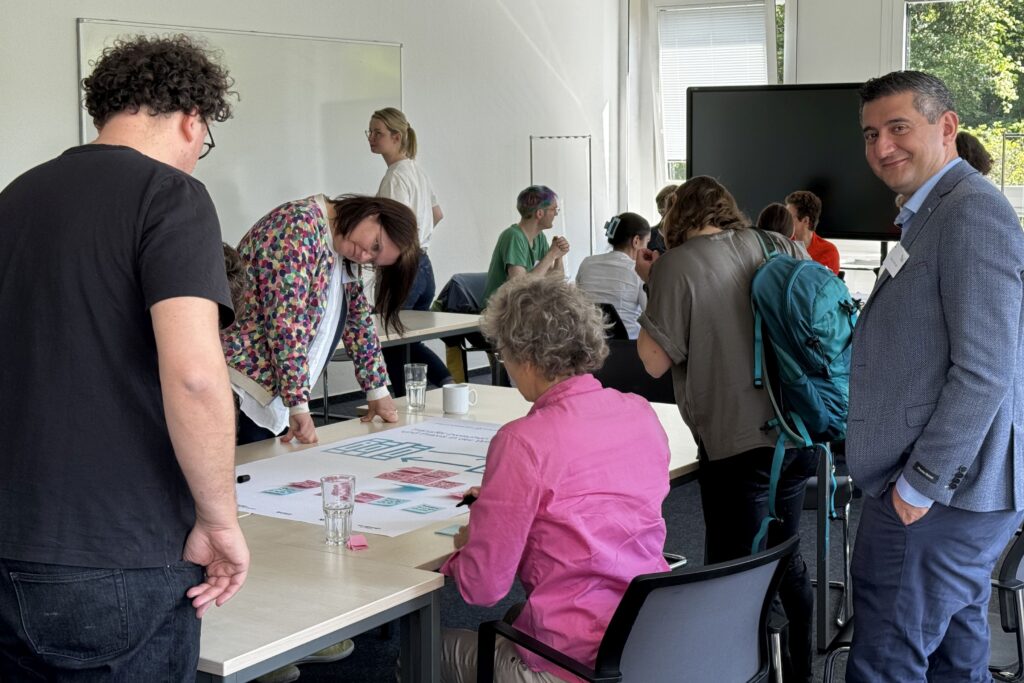
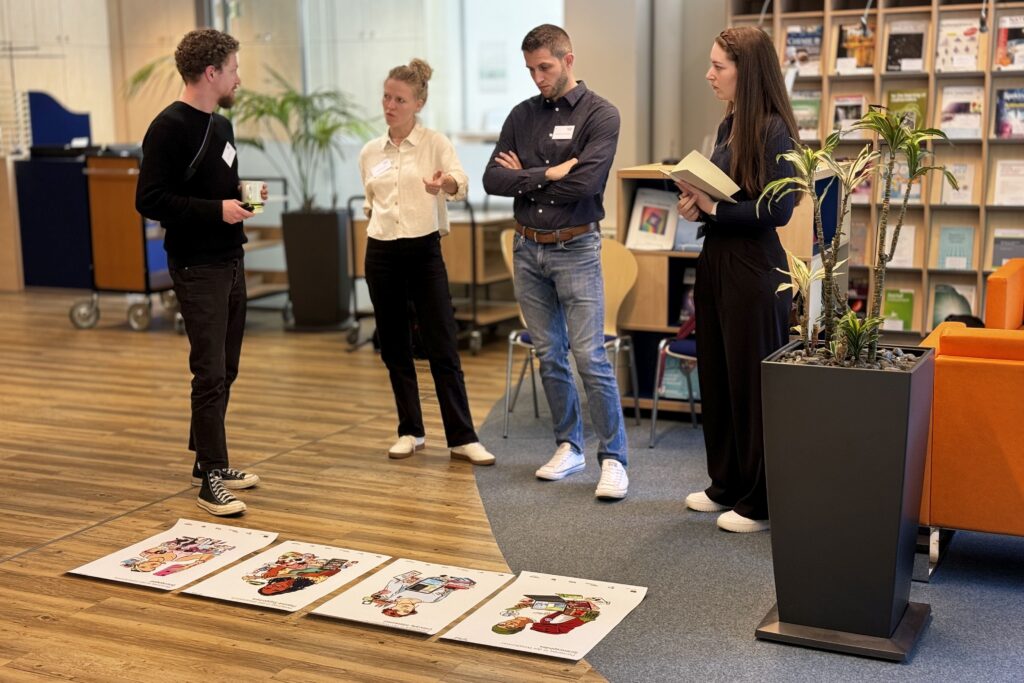
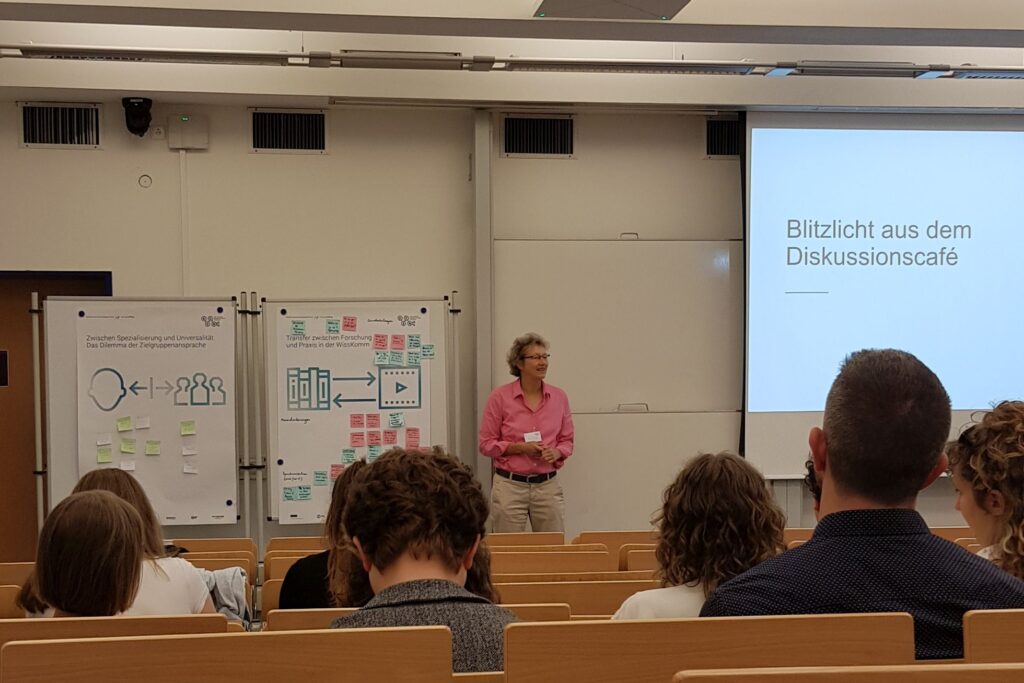
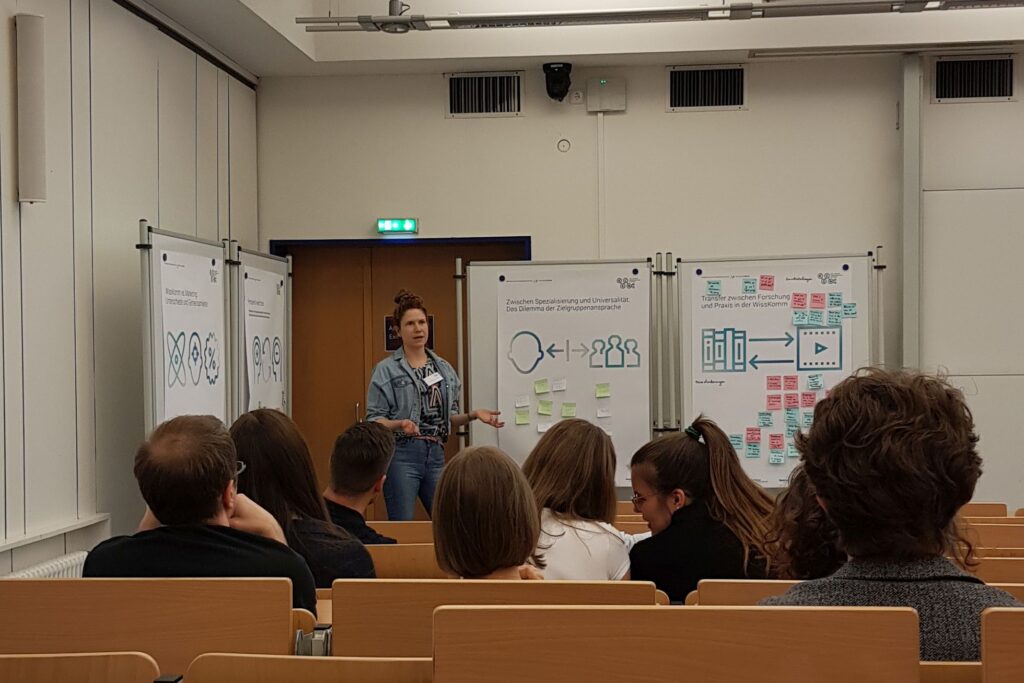
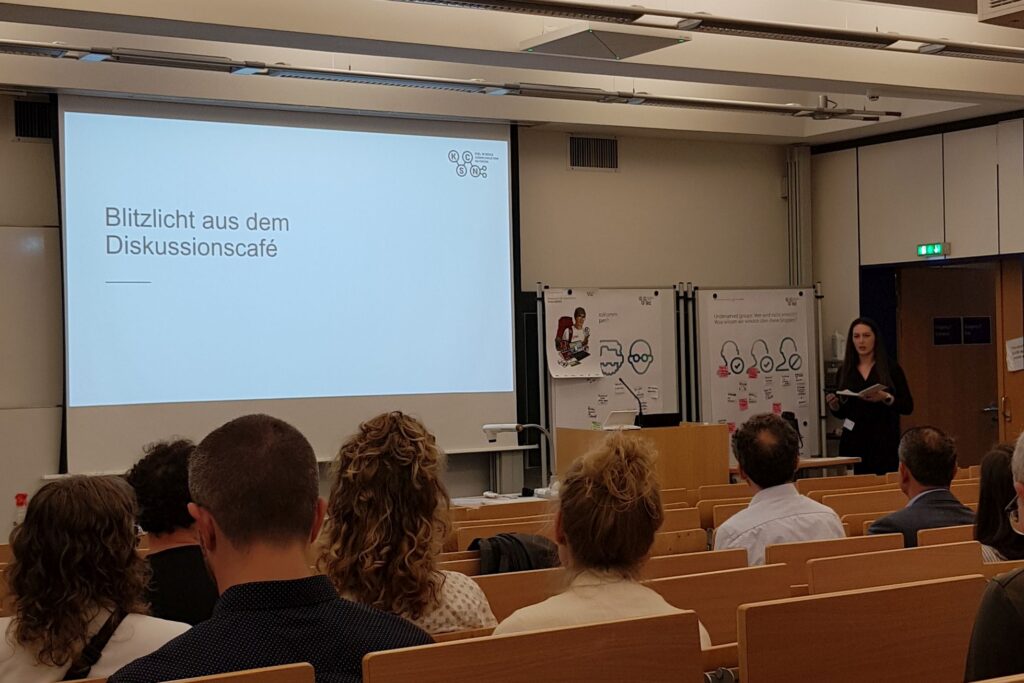
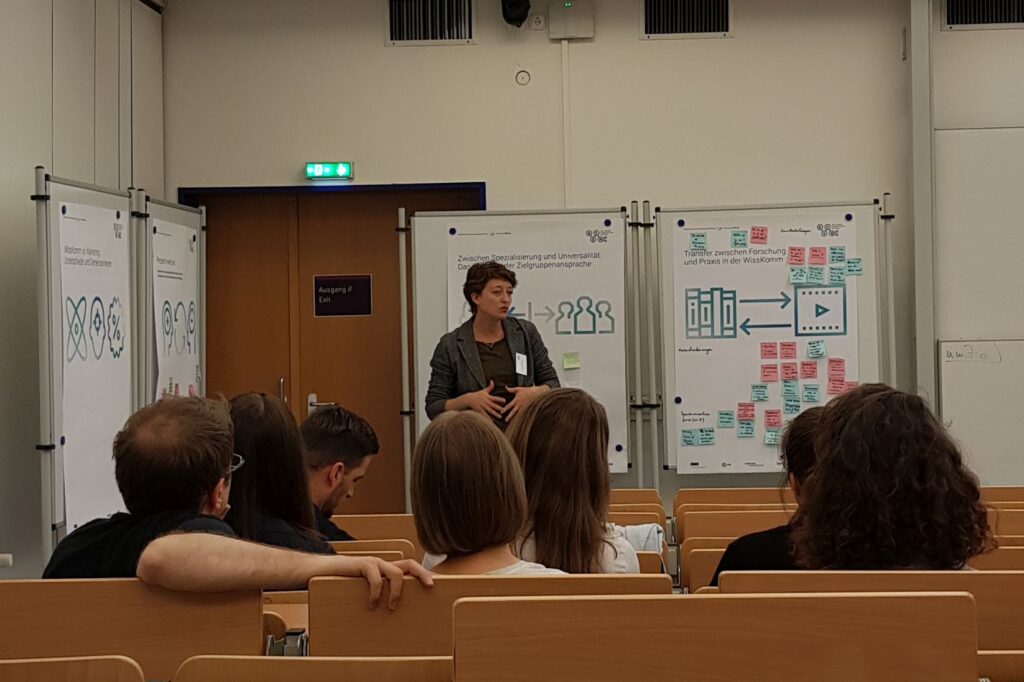
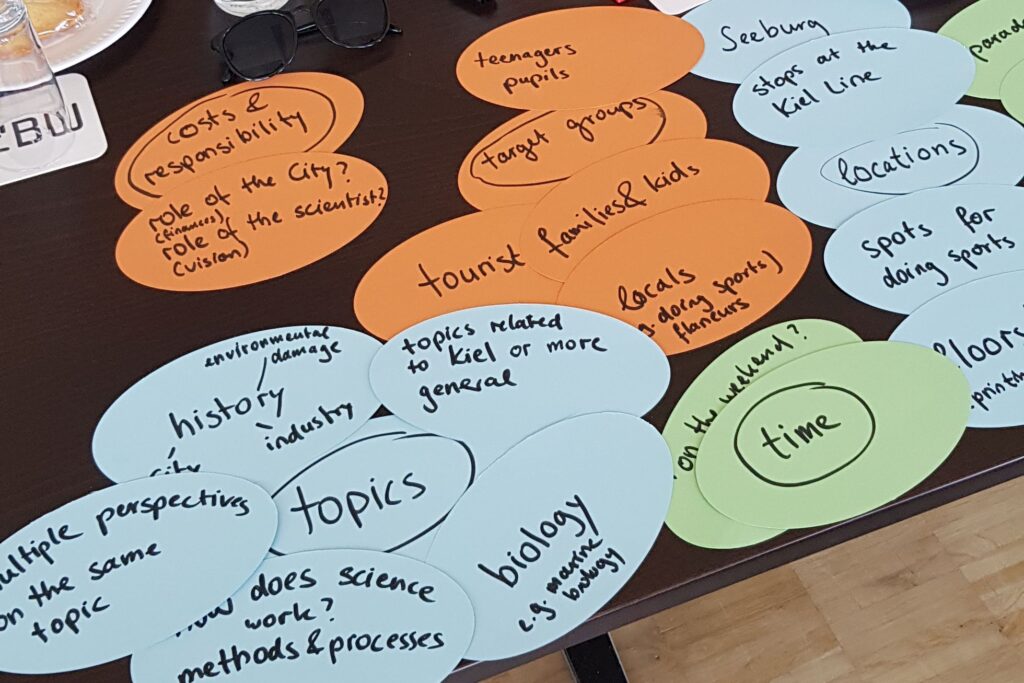
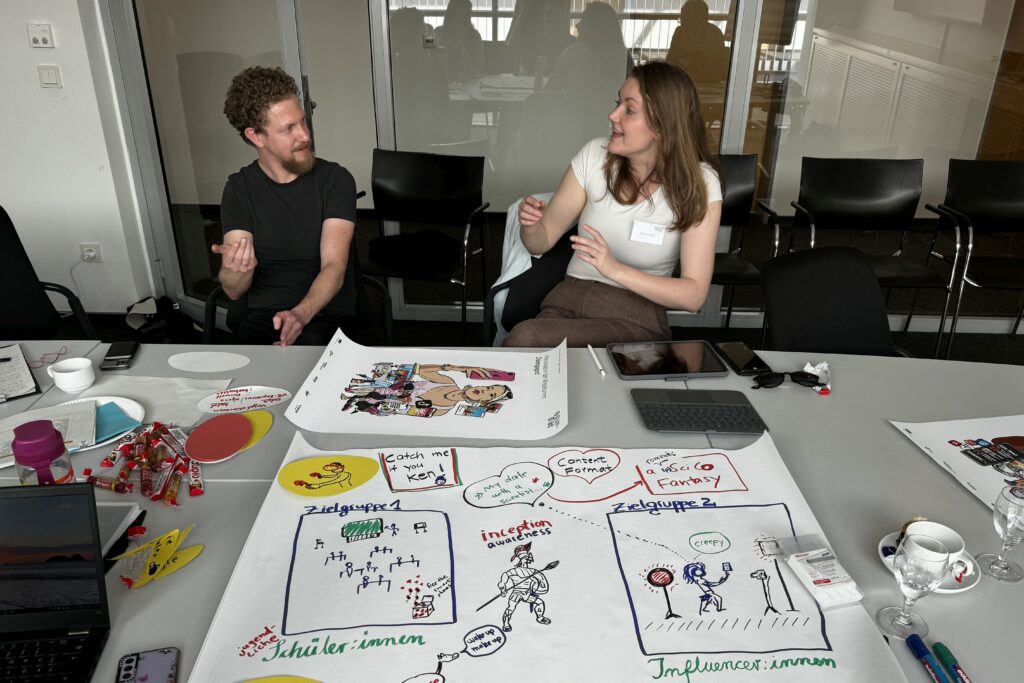
Presentation of the Workshop Results
Friday started with the presentation of the results from the workshops. These ranged from regional products from various start-ups, supplemented by scientific information on the labels, to offers for vocational school students and a participation process for displaying scientific content on the Kiellinie. The undisputed winner of the pitch was the “Stay Ken’ected” concept. The target groups here are influencers and schoolchildren. In the digital space, they encounter “Environmental Health Ken”, “Renewable Energy Ken”, “Oceanography Ken” and numerous other variants and learn more about these research areas.
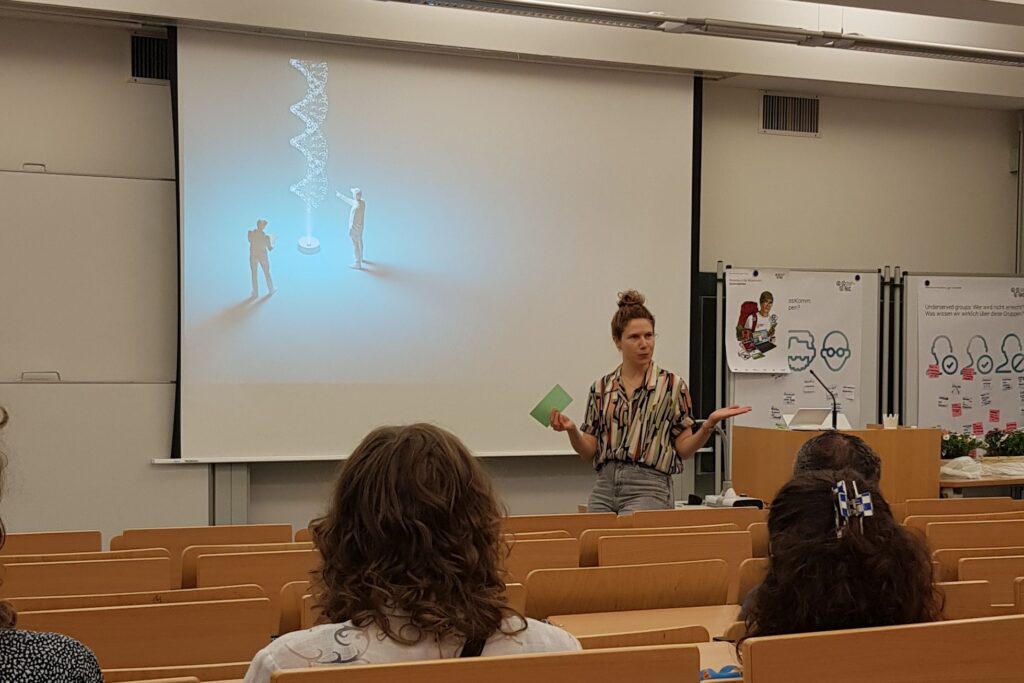
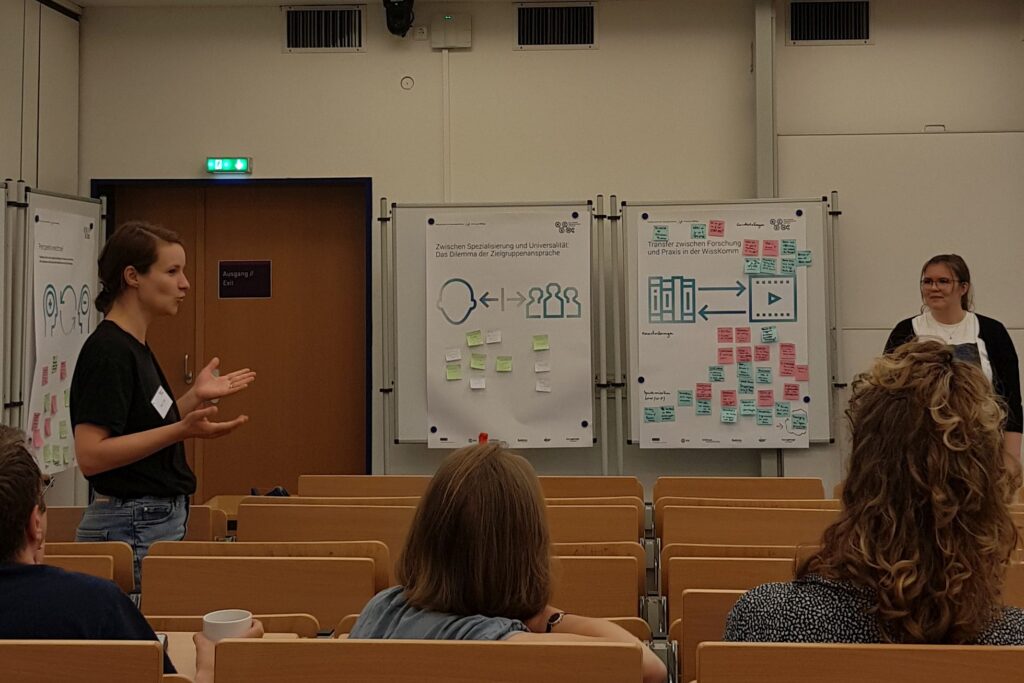
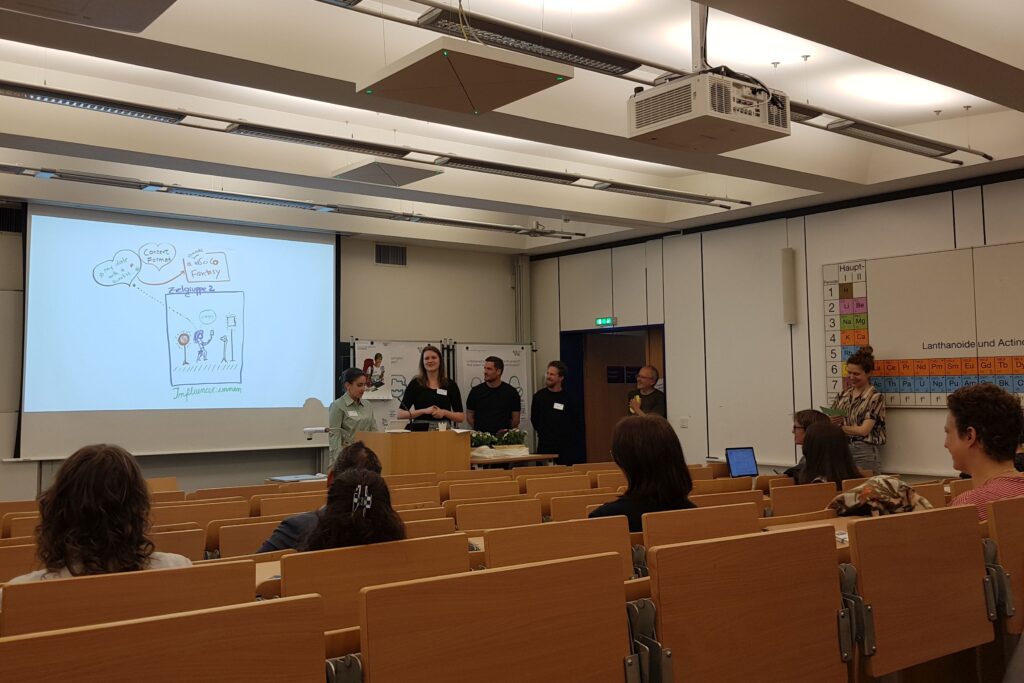
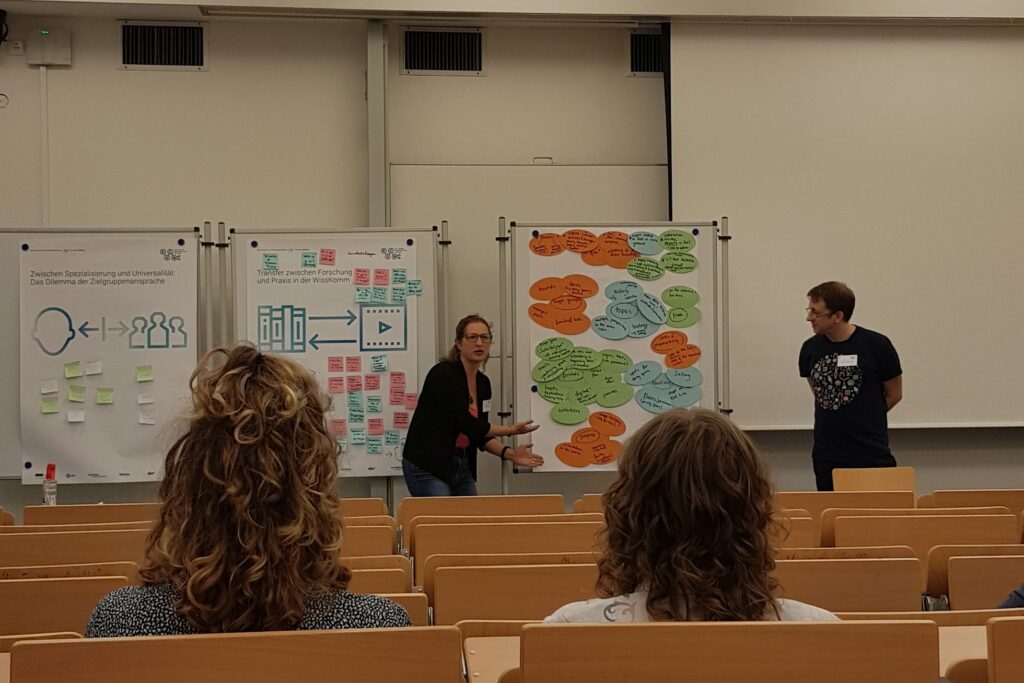
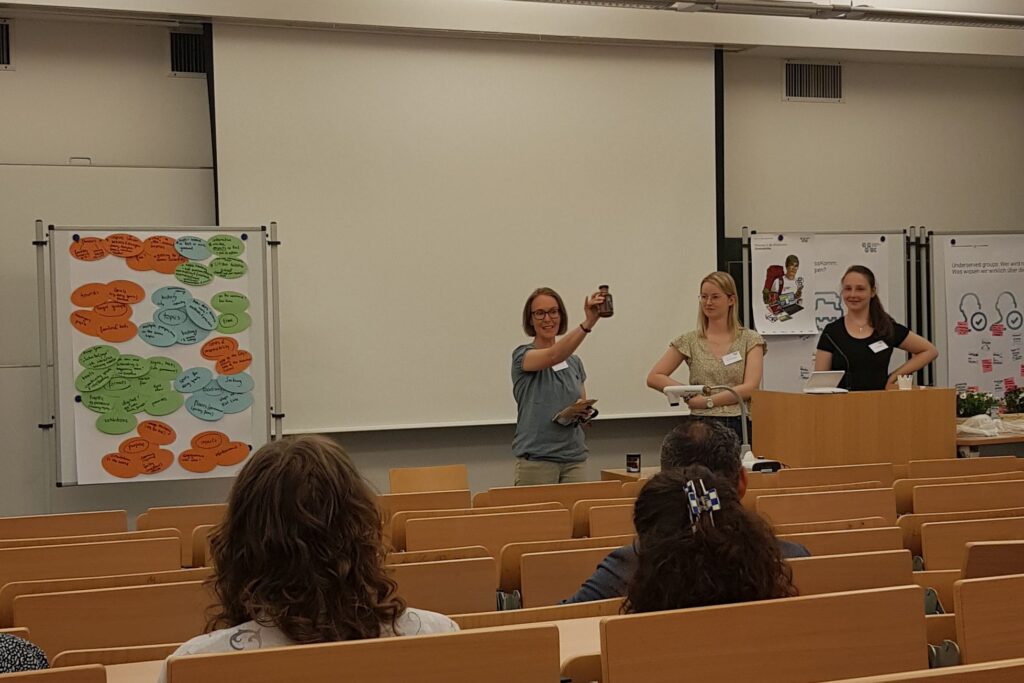
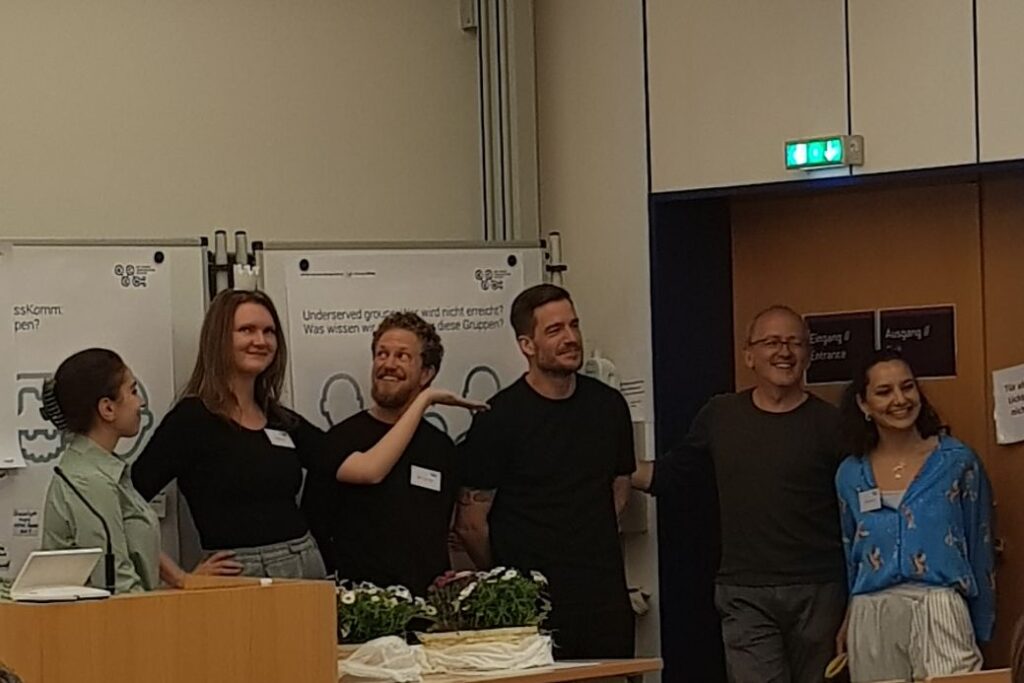
All participants concluded the event on a thoroughly positive note and are looking forward to the next networking meeting. Many thanks to the RRC for volunteering to host it!
